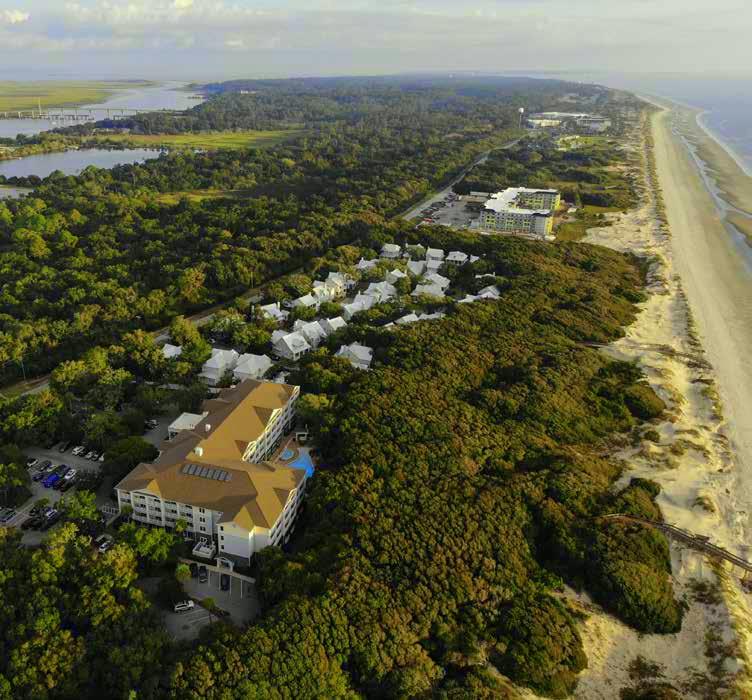By Ben Carswell, JIA Director of Conservation
The term, “sustainability” can be confusing because it can be used to make almost anything sound better. We can’t resist such a flexible word that generally conveys an abiding commitment to lasting positivity. Who can argue with that?! Consequently, “sustainability”, the word, is not at all hard to find. On the contrary, achieving tangible goals associated with sustainability, can be challenging and illusive.
Maybe a good starting point to understand sustainability is in relation to another familiar word, “balance”. As stewards of Jekyll Island State Park, we are charged to maintain “the delicate balance between nature and humankind” in this special place. So how can we know if we are off balance? Simply put, if natural systems are deteriorating due to human activities, we are off balance. We have taken too much from nature and failed to sustain it. When we assume that nature can endlessly absorb whatever byproducts of human material pursuits we spew forth, we are bound to fall off balance and the quality of our environment and our lives cannot be sustained.
Visitors to Jekyll Island know well the uplifting sensation of leaving our cares behind when we travel down the causeway and arrive on the Island. Some of that comes from the physical nature of an island itself – a place that is geographically isolated by its surrounding waters. Much of the wildlife that we host on and around Jekyll are seasonal visitors too, in the case of many shorebirds, relying on habitats strewn across the western hemisphere. Likewise, in terms of the Island’s air, water, and waste, Jekyll is neither self-contained nor is it self-sustaining, without abiding care and effort.
These three elements are the focal points of a new chapter added to the recent update of the Jekyll Island Conservation Plan, charting the way for Jekyll Island’s contributions to a more sustainable future. The Island already contributes to cleaner air in partnership with Georgia Power and Cherry Street Energy through the Jekyll Island Solar Field. This adaptive reuse of a decommissioned landfill site, feeds enough clean electricity into the grid to power the equivalent of over 100 homes. Jekyll Island’s LEED Silver certified Convention Center conserves water by using rainwater stored in underground cisterns to offset its landscape irrigation and toilet flushing needs. A newly built parking near the entrance to the National Historic Landmark District is 100% pervious, allowing rainwater to infiltrate the soil naturally, better sustaining the surrounding stately live oaks and protecting the adjacent marsh. In partnership with the UGA College of Engineering, an island-wide waste audit has recently been conducted to better understand the composition of our current material waste streams and to plan for reducing waste. Building on these initial accomplishments to achieve measurable sustainability goals, in energy responsibility, material waste reduction, and water conservation, will call for a systematic and innovative approach.
Just as the pursuit of sustainability challenges us to consider the impacts of human activities on Jekyll Island in a context that is broader than the island itself, it also charges us to take a long view, believing that, in building on successive advancements, Jekyll Island can continuously reduce its environmental footprint. The recipe for a sustainable Jekyll Island in 2050, has yet to be imagined, but the time to start piecing it together is now.
For more information on Jekyll Island conservation efforts, click HERE.
